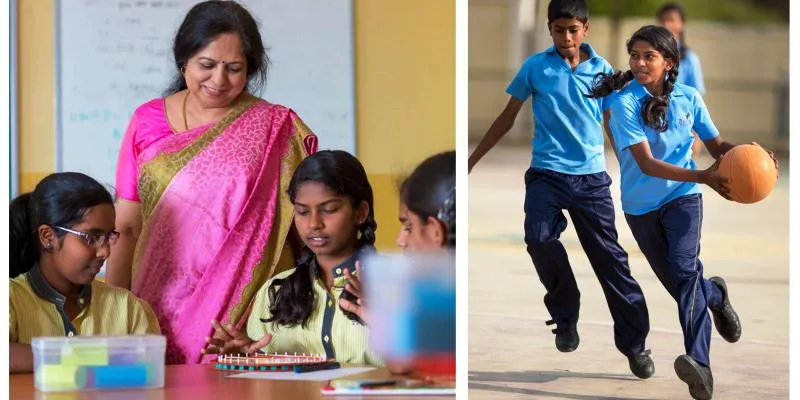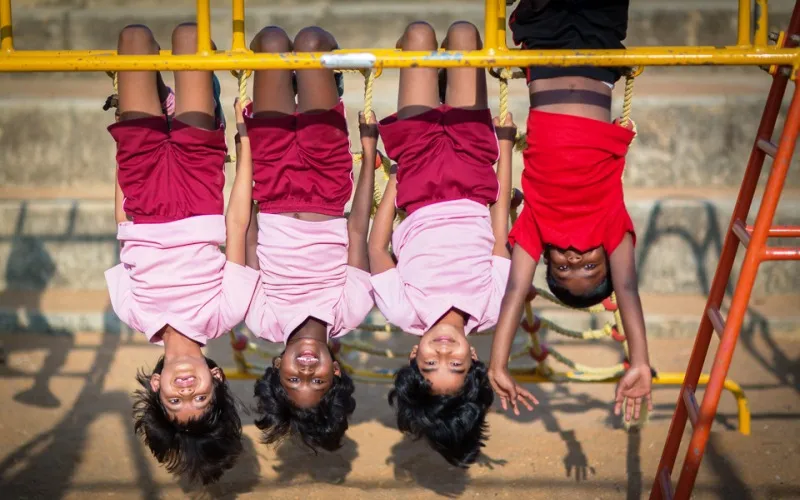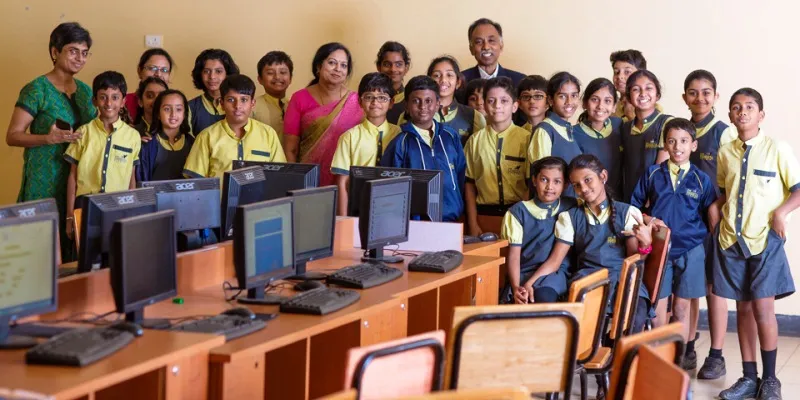By providing food, shelter and education, Advaith Foundation is giving children roots and wings
Started as a scholarship programme, Bengaluru-based Advaith Foundation now runs hostels and schools, opening up new doors for underprivileged children.

A child without education is like a bird without wings, goes an old Tibetan proverb. When it comes to effecting change, it’s well known that there can be no better weapon than education. But education isn’t easy to get for a majority of India’s children.
“The reason why the underprivileged classes remain the same for generations is lack of education; the cycle of poverty never ends. They fail to see how education could empower them. Shibulal and I came from a lower, middle-class background and made our way up the ladder solely because of education,” says Kumari Shibulal, Patron of Advaith Foundation.
Bengaluru-based Advaith Foundation was started in 2005 keeping in mind the premise that education can “free us from our limitations and open up amazing new possibilities”.
“We cannot stress on the importance of education, it cannot be taught in a lecture hall; it has to be learnt through life. So, when we decided to give back to society, this was the path we chose,” she adds.

Empowering society, one child at a time
SD Shibulal, co-founder of Infosys, and Kumari Shibulal started their journey to help others by supporting two underprivileged children from a school in Kerala. They began a scholarship programme, Vidyardhan, to provide students with necessary financial support to complete their education till Class 12. The program grew to include more students but experienced a few setbacks.
“We noticed that the scholarship that we were providing was just enough to keep the children in school. After Class 10, children dropped out to support their family. We wanted to ensure that their education was not halted at any given point, due to any circumstances,” Kumari says.
They were helped in their endeavor by Asha Thomas who, after working in the IT sector for 16 years, quit her job in 2004.
“I had found people who had the same mindset as me and wanted to pursue a path similar to mine,” says Asha, now Executive Director of The Samhita Academy and Trustee of Advaith Foundation.
Together, the trio decided that the best way to support the children was to take them in at a young age and provide all their needs in a residential setting. They called this project Ankur, the first one under Advaith Foundation.
They began three such residential establishments, or homes, each with around 10 children. Food and shelter were not the only things provided. As the children were separated from their mothers at a young age, each home had a house mother who took care of the emotional needs of the children. Parents could come and visit their children once every month. Two other women were tasked with taking care of the other needs of the children.
For education, the children were sent to high-end schools.
“We realised a little later was that these children needed special care which the other schools weren’t able to provide. We considered these children our own and seeing them face difficulties was heartbreaking for us,” Kumari says.

Starting their own school
To ensure that the children were receiving the right kind of education, in the right environment, in 2008 they started Samhita Academy under Advaith Foundation. The academy started as a full-fledged CBSE school with the star point being that while the fees bracket is similar to other schools, 75 percent of the children come from privileged backgrounds while the other 25 percent are from Ankur, making it a unique establishment in the educational sector.
Asha says, “Starting such a school was definitely challenging. From finding a huge plot to getting the right support staff and sensitising teachers to ensure that the diversity among students did not lead to anyone being singled out, we faced quite a few challenges but we’ve overcome them.”
“Before hiring support staff or teachers, we explained the foundations of our school, our children. And to ensure parents were also aware of this, we have regular meetings with them. We hold sessions with other students where we let the children express their doubts regarding Ankur students and help them get comfortable with the ideology,”
Ankur students stay at a hostel and they have a fun, educational after-school time to ensure that they are in tandem with their peers.
“The truest testament to the work we’ve done is how confident the students are, how well they’ve grown and how much they’ve accomplished after graduating from here. We’ve nullified the whole idea of mainstream work, which is either dedicated solely to the underprivileged or not. Here, both are under our control and the effect of this is most certainly visible in our students,” Asha says.
Ankur has 128 students enrolled in its programme; two students cleared their Class 10 examination last year.
After graduating from school, students of Ankur come under the Vidyardhan programme giving them the financial support to pursue further studies in a field of their choice.
Making a difference
“Coming from the corporate world, I could see what was missing. The idea of ethical, independent, and out-of-the-box thinking was something we had to learn later in life. But I think this is something even schools can work on. We included this in our education. So, till Class 5, we train their minds to be independent, from Class 6 to 8, we introduce them to the pressures of studies, and Class 9 and 10, we reserve for the boards. This way, they are ready for everything,” she says.
Samhita, with two schools in Bangalore and one in Coimbatore, recently introduced Class 11 and 12 for students, with science and commerce streams. The schools also offer career counselling. The Vidyardhan programme is currently active in seven states, and is in its 18th year.
Shibulal, Permanent Trustee of Advaith Foundation, says: “It is our mission to make education accessible to children from different walks of life. This will ensure the effects cascade and resound in generations to come.”







